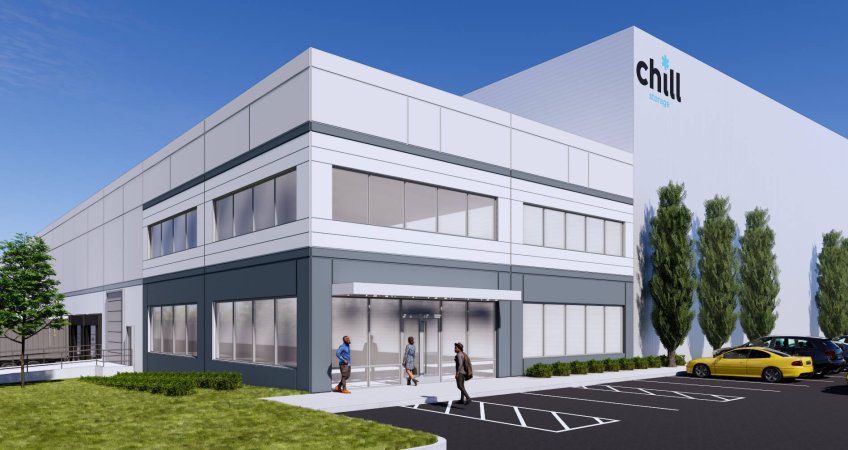Chicago Ramps Up Cold Storage Infrastructure
Driven by a confluence of factors including a booming population, e-commerce expansion and aging infrastructure, the Chicago area is experiencing a surge in cold storage development. These state-of-the-art facilities are crucial for storing and preserving temperature-sensitive goods, ensuring a steady supply of fresh food and vital products to consumers. Illustrating this race to meet demand, Karis Cold is building a 100,000-square-foot facility in Chicago’s historic Stockyards district, while Alston Construction is underway on a 389,880-square-foot freezer storage facility in Plainfield, Illinois, in partnership with Barber Partners.
“Chicago’s an industrial hub, a food manufacturing hub,” said Jake Finley, CEO of Karis Cold. “Throughout the city, you’ve got the restaurant supply chain, you’ve got the retail supply chain and the shift to more and more food that we’re consuming being temperature controlled throughout its life cycle.”
Tom Degan, vice president of cold storage for Alston Construction Company, added that population shifts to the east, availability of skilled labor in the Midwest and access to major transportation networks also make Chicagoland a go-to for temperature-controlled space.
“The pandemic greatly increased e-commerce in all markets but especially in the grocery sector,” Degan said. “Now that e-commerce in the food industry is widely accepted, grocery footprints are changing, restaurants are adapting and more cold storage facilities are required to accommodate the increased demand.”
The demand is also responding to aging inventory in the cold storage sector. The average cold storage building in the U.S. is more than 40 years old, Degan pointed out, even as regulations on food safety and refrigeration practices and technological advances in storage height and energy efficiency have forced these older buildings to become obsolete.
In response, companies like Alston and Karis are investing in new product – in Chicago and across the country.
“We have almost $1 billion of new cold storage construction in multiple different markets,” Finley said. “Chicago is a big piece of that.” Karis’s $30 million, innovative Stockyards facility will utilize advanced technology to maintain temperatures as low as -10 degrees Fahrenheit, ensuring the freshness and quality of perishable goods. The building will be “purpose-built” for cold storage with unique construction materials and systems, and will feature a landscaped setback and public artwork.
“The way that we’re building the buildings is unique and modern,” Finley said. “We talk in cubic footage, not square footage. The taller the building, the more energy efficient the building is, the more product can be stored in the same footprint. That’s a big piece of it. The technology of refrigeration equipment has evolved dramatically, reducing the impact on the utilities from a cost standpoint, as well as from a demand-of-energy standpoint, which I think is good for everybody involved.”
Alston’s Plainfield facility boasts cutting-edge technology designed to maintain optimal storage conditions for perishables at -10°F. The project incorporates an ALTA Expert refrigeration system and a glycol under-floor heating system within the freezer space, showcasing Alston’s commitment to innovation. Additionally, the facility will include support offices for multiple tenants, catering to a variety of cold storage needs.
“The increased demand for cold storage facilities is not only driving speculative development in order to expedite speed to market, but also bringing in several new developers and PRW operators to meet the growing needs,” Degan said.
“The challenge to the industry will be to maintain the appropriate balance in order to not overbuild these spec buildings, however based on the projections, we’re several years from creating a surplus.”
He added that hiring qualified design and construction teams with cold storage expertise is of utmost importance, citing Alston as one of those.
Looking ahead, Finley anticipated the positive impact the new Karis facility would have within Chicago.
“It’s going to create good jobs,” Finley said, noting that the project is currently talking to potential tenants interested in being the flagship of the building. “It’s going to create redundant infrastructure for the people of Chicago and the food supply, which is great for everybody.”
With experienced developers like Karis Cold and Alston Construction leading the charge, Chicago is well-positioned to meet the growing demand for temperature-controlled storage solutions, ensuring a steady supply of essential goods for consumers for years to come.
Source: CIPJournal

